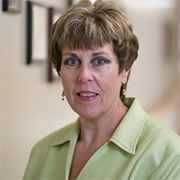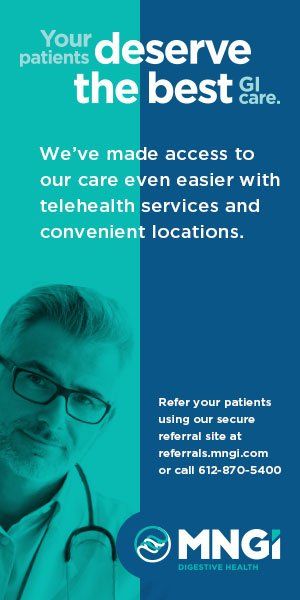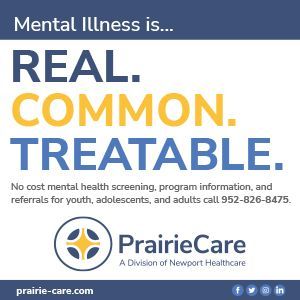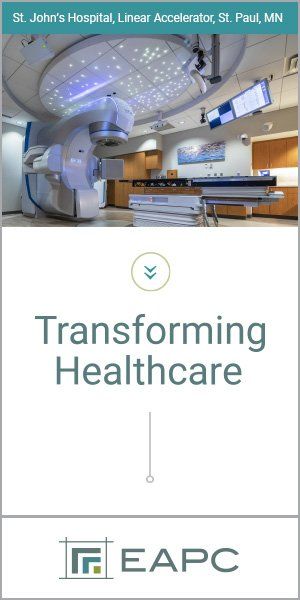Interview
Providing a True Continuum of Care
Kimber Wraalstad, MHA, Administrator/CEO at Cook County North Shore Hospital and Care Center
In terms of land area, Cook County is the 12th largest in Minnesota but it ranks 81 out of 87 in terms of population. As the only hospital in the county, what kind of challenges does this present?
The challenge associated with our population is twofold: workforce and service. As a community of low population, obtaining workforce is a challenge. Cook County has the second oldest population in the state of Minnesota, which means many of our population are not in the workforce. Many of our homeowners are not full-time residents. Their Cook County home is their second home. North Shore Health competes with other employers, including our tourist industry, for workforce. In an effort to help create our own workforce, we have started our own education programs, with the support of the North Shore Healthcare Foundation and Cook County Higher Education. We are also actively involved in immigration. We have current employees from other countries working for North Shore Health. They have family members who are interested in coming to Grand Marais to work for us. This is positive because they have housing and a support system. We are now on the immigration journey that, if successful, could take four to five years.
With the limited population, the individuals requiring service is also a challenge. While we have many tourists who use the emergency department, these are not individuals who use our health system for routine care. Services such as lab, mammography, physical therapy, IV therapy and other programs for routine and chronic conditions do not generate the volume needed for robust programs. These routine services are also those that generate revenue to help support these services provided at North Shore Health. We do not have a profitable operating margin and are dependent on our property tax levy.
The greatest challenge associated with our location is the distance to referral centers in Duluth. St. Luke’s and Essentia provide the secondary and tertiary care needed by our patients, and before it’s a 110-mile drive from our facility and up to 150 miles from some of our community members. It is sometimes assumed that we will be able to fly patients to the next level of care. Unfortunately, the weather along the North Shore frequently makes such transfers impossible, which means we need to transfer patients by ambulance two hours by ground. That can be a long trip.
Cook County had a remarkably low number of COVID cases. What can you tell us about why that was?
The response to COVID-19 was a truly remarkable collaboration between the health care organizations in Cook County and our community residents. The joint efforts by Cook County Public Health and Human Services, Grand Portage Health Services, Sawtooth Mountain Clinic and North Shore Health highlight the importance of a collaborative response by health care organizations. The local radio station had representatives on the radio three times a week. We are immensely proud of the fact that the nursing home has not had a resident who has had COVID-19. We went through three years of COVID-19 and not one resident case. That is a testimony to our employees, residents and family members. We never had family members argue about the restrictions that were put into place, even though we did not always agree with the regulations. I repeatedly heard from family members, friends and employees that they did not want to be the person who brought COVID-19 into the care center, so they took the precautions seriously.
There seem to be several policies, both state and federal, that contribute to lower reimbursement for health care services in rural areas, even if outcomes are outstanding. Are there things about this that you would recommend changing?
Policies have been developed by state and federal agencies without any idea of life in rural communities. They are attempting to create rules that work in all areas but do not realize how different it is when we are trying to care for a population of only 5,700 but that swells to 15,000 during the summer. This limited population is in a land area of 1,452 square miles with 110 miles to the tertiary providers.
Medicare requires a 96-hour physician certification requirement for critical access hospitals. This requirement does not improve quality of care and actually increases costs. Draft legislation has been introduced every legislative session to address this issue, but there has been no action yet. Critical access hospitals are reimbursed by Medicare at 101% of allowed costs, however, we are subject to the 2% reduction for Medicare sequestration. That means we receive 99% of our costs. That is a challenge for small rural providers who have a high percentage of Medicare patients. So how do we make up the difference so we are viable? The 340B Drug Pricing Program has provided some needed additional resources. However, manufacturers and pharmaceutical benefit managers are enacting restrictions to make this program more complex and less available. Another issue is the Centers for Medicare & Medicaid Services (CMS) staffing ratios proposal for nursing homes. One staffing level does not fit all, every nursing home is different, and organizations need to be able to address their unique needs. North Shore Health is attempting to grow our workforce in many different ways, yet there are not people to hire. With an unattainable mandate, one that is also unfunded, nursing homes will close, significantly limiting access to care for our older adults and their families.
Working in health care is a wonderful profession.
Please tell us about Wilderness Health and your work there.
North Shore Health is a founding member of Wilderness Health, which was established with a goal to support the independent health care organizations in northeast Minnesota. The Wilderness Health core values of collaboration, independence, networking and quality align with the objectives of North Shore Health. The three primary strategic priorities of Wilderness Health are cultivating the health care talent pool, developing a comprehensive telehealth program and advancing value-based care. While North Shore Health is actively participating in all three of these priorities, our emphasis is on the telehealth program and health care talent pool. The health care talent pool strategy supports the round tables that bring leaders from membership organizations together to provide support and education to each other. Exploration of educational opportunities to develop various job categories is being coordinated with college and university partners. We are working together to develop a communication plan to change the narrative of working in health care. Working in health care is a wonderful profession with an opportunity to make a difference in someone else’s life.
Health care workforce shortages are a problem everywhere. How are you addressing them at North Shore Health?
Health care workforce shortages are a challenge throughout Minnesota and the United States. North Shore Health is not immune to these shortages. In an effort to address the challenges, North Shore Health has developed educational programs that are offered right in our own community. We are partnering with LeadingAge MN and the On Track program to provide nursing assistant education to individuals as soon as they express interest in this educational opportunity. It is no longer necessary to wait for a minimum number of students to offer a nursing assistant class. We also had the opportunity to participate in the in-facility CNA testing pilot project sponsored by LeadingAge MN and the Minnesota Department Health (MDH). This gives our students an opportunity to complete their CNA testing locally without trying to find an available slot at a college testing site that requires a several hours’ drive. This was a successful pilot and I believe MDH is expanding this opportunity to other areas. Education for emergency medical technicians is also another area that North Shore Health has developed. Individuals interested in becoming an emergency medical technician can complete their education in Grand Marais. In 2023, two students successfully completed the EMT class and passed the national registry exam. It is exciting to report that another class will be starting this fall with seven students, including individuals from Grand Portage and the Gunflint Trail. To assist with the education of both the EMTs and nursing assistants, the North Shore Healthcare Foundation donated funds to purchase a simulation mannequin. The mannequin provides the students with an opportunity to experience a multitude of scenarios that are more realistic than they are able to experience when using real human volunteers.
Please tell us about your virtual hospitalist program and in general how you are using telehealth.
In early 2023, the local medical clinic announced they would no longer be able to provide hospitalist services due to physician recruitment challenges. If North Shore Health wanted to continue as a hospital, we needed to identify alternative options for physician services for hospitalized patients. The Minnesota Hospital Association had shared information about the hospitalist program developed by Horizon Virtual, a Minnesota-based company. As we began our search for alternatives, we contacted Horizon Virtual to determine if they could help support hospitalist services in Grand Marais. During our exploratory discussions with Dr. Darin Willardsen and Dr. Todd Severnak, founders of Horizon Virtual, they immediately wanted to identify ways in which they could support North Shore Health and the Cook County community. The Horizon Virtual model had been developed to provide hospitalist services during the night hours to provide relief for local providers. The relationship with North Shore Health would require hospitalist coverage 24 hours a day. While Drs. Willardsen and Severnak had been contemplating expanding their hours, they were not quite ready to take the leap of doubling the hours of service they provided. With North Shore Health’s need for 24-hour coverage, they expanded their availability and agreed to take North Shore Health as their first 24 hour-a-day client. We still had the issue of patient rounding and discharges. We spoke with our Emergency Room provider, Wapiti Medical Group, and the Emergency Department physicians about the possibility of their partnering with North Shore Health and Virtual Horizon to provide that service. The Emergency Department physicians recognized the importance of being able to offer inpatient and swing bed services in Grand Marais and they became part of the needed solution. Much concern/trepidation was voiced about using the electronic medical record. To set everyone up for success, Dr. Kurt Farchmin, our previous medical director, created a series of YouTube videos demonstrating the use and intricacies of North Shore Health’s electronic medical record. On July 1, 2023, North Shore Health transitioned to our virtual hospitalist model. The physicians with Horizon Virtual provide the admission services for the patients 24 hours a day and also support the emergency department physicians by providing cross coverage. The emergency department physicians provide the daily rounding and discharges. It really is a wonderful model. We have internal medicine critical care physicians who admit and consult patients and emergency department physicians who provide the hands-on procedures. It is a brand-new model and we are still figuring out the process, routines and medical records, but it has generally gone well.
North Shore Health also uses the Avel eEmergency TeleHealth service to support the emergency department physicians and nurses. We have instant-access physicians and nurses to provide support and assistance for those situations we do not experience frequently. They are added members of our care team. Avel is now offering sexual assault medical forensic evidentiary examination (SAMFEE) virtual services. We are in the implementation phase of this project and are pleased to be able to partner with Avel in offering this service when it is needed.
Incorporating community organizations and resources into improving population health is becoming increasingly important. What are some of the ways you are doing this?
This is an area where our involvement with Wilderness Health shines. With the focus on care coordination and behavioral health by all the members, we can learn from each other and adapt programs to fit our needs. Care coordination looks at all aspects of care from hospitals to clinic to public health. North Shore Health recently had the opportunity to host the Wilderness Health Care Coordination Roundtable as they received a presentation from the Minnesota Department of Health about trauma-informed care. Behavioral health has been a focus for many years. North Shore Health participated in the workshop on creating a mental health friendly community. We then received a grant to support Make it OK events and collaborated with the North Shore Music Association for an event with Sam Miltich: The Improvised Life: Exploring Intersections of Mental Health and Creativity Through Jazz. The grant also supported the project with the local mental health taskforce to host community conversations throughout the entire county.
Providing hospital and long term care services on the same campus must be a delicate balancing act. What can you share about this?
Actually, I believe it is a benefit to have one campus with many health care services, particularly in a rural area. For North Shore Health we truly provide a continuum of care. Our care center residents benefit from readily available access to physical therapy, lab and radiology services. An individual might come for an outpatient visit and then go down the hall to visit a family member or friend in the care center. An example of the value of a unified campus is seen in our response to COVID-19. At a time when many nursing homes were wondering how to provide fit testing for their employees, that had already happened at North Shore Health because all our employees are part of one organization. We had available laboratory testing for COVID-19 because of the availability of the hospital lab. When the COVID vaccine became available, we were able to provide more immediately available vaccinations to all our employees. I have seen EMTs who weren’t on call support nursing home residents by just visiting. I think one of our ladies may have fallen a little in love; what a nice way to spend the end of her life. Nurses from the care center have gone to the hospital to assist with procedures they do more frequently, such as tube feedings and wound care. Employees have the opportunity to use their skills in different areas with different individuals who have a wide variety of needs. There is a different mindset and there are significantly different regulations, but in a rural area with limited resources, one campus allows us to efficiently provide our community with needed services.
North Shore Health was recognized by the National Rural Health Association as a 2023 top 20 critical access hospital in the area of patient satisfaction. What advice can you share about this?
North Shore Health sends a survey to every individual who has been a patient in our hospital, regardless of the patient classification or their insurer. This allows us to receive much feedback, not only the positive responses that allowed us to receive the National Rural Health Association award but also responses when we did not meet our patient expectations. It allows us to evaluate opportunities to change practices and protocols to enhance our service. Patient satisfaction is an area where being a small facility in a small community is a benefit. We are taking care of our relatives, friends and neighbors; there is often history between patients and employees, and we know the patient’s story and the empathy is great. The employees and medical staff provide excellent care and service to our patients and it is recognized.
Kimber Wraalstad, MHA, is the administrator/CEO at Cook County North Shore Hospital and Care Center.
MORE STORIES IN THIS ISSUE
cover story one
A Crisis in Home Health Direct Care: The Minnesota Solutions Model
By Jesse Bethke Gomez, MMA
cover story two
The MN 2035 Plan: Improving Public Health
By Thomas E. Kottke, MD, and Clarence Jones

















